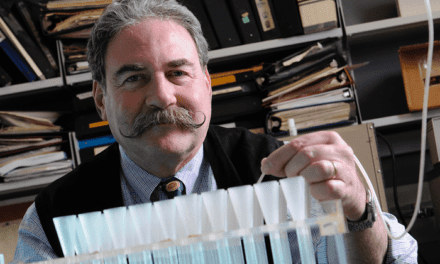It isn’t so many years ago—just a couple short decades—since the term “personalized medicine” first emerged from the halls of biotechnology and sprang to public consciousness.
At first, the term seemed to have a dream-like quality about it—more like a hope than a plan. But with many of Big Pharma’s blockbuster drugs approaching the end of their patent life, and no equivalent replacements in sight, building a pipeline of personalized biotherapeutics suddenly found favor—and funding. And with funding came significant increases in both the basic and clinical research needed to drive the field forward.
It took a few years for the effort to gather momentum, but by the time the formal completion of the Human Genome Project was announced, in 2003, the notion of a personalized medicine future had begun to take shape in the form of commercialized products. By 2006, according to the Personalized Medicine Coalition, there were 13 personalized medicine drugs, treatments, and diagnostic products available—a number that has since grown to more than 100.
In light of the extensive and long-standing connections among biotechnology researchers, pharma developers, and companies with a stated focus on personalized medicine, it’s not surprising that most definitions of the field continue to emphasize the promise of lifesaving therapies. But a short definition of the field posted by the Personalized Medicine Coalition is worth quoting:
Personalized medicine is an evolving field in which physicians use diagnostic tests to determine which medical treatments will work best for each patient. By combining the data from those tests with an individual’s medical history, circumstances, and values, healthcare providers can develop targeted treatment and prevention plans.1
Among all the definitions of personalized medicine that have circulated over the years, this statement is almost unique in the prominence it gives to diagnostics as the foundation on which the field is built. The simple fact is that without increasingly precise and advanced diagnostic testing—and the laboratories that conduct clinical testing—the advance of personalized medicine would come to a grinding halt.
Whatever else may be or become true about the field of personalized medicine—and one can also include the more generalized notion of “precision medicine”—the central importance of diagnostic testing should not be in doubt. The lifesaving advances in personalized therapeutics that we hope to see in the future will only become possible through the linked efforts of the clinical laboratory community.
Steve Halasey
Chief Editor, CLP
[email protected]
(626) 219-0199
REFERENCE
- What is personalized medicine? [online] Washington, DC: Personalized Medicine Coalition, 2015. Available at: www.oersonalizedmedicinecoalition.org/education/overview. Accessed August 25, 2015.




